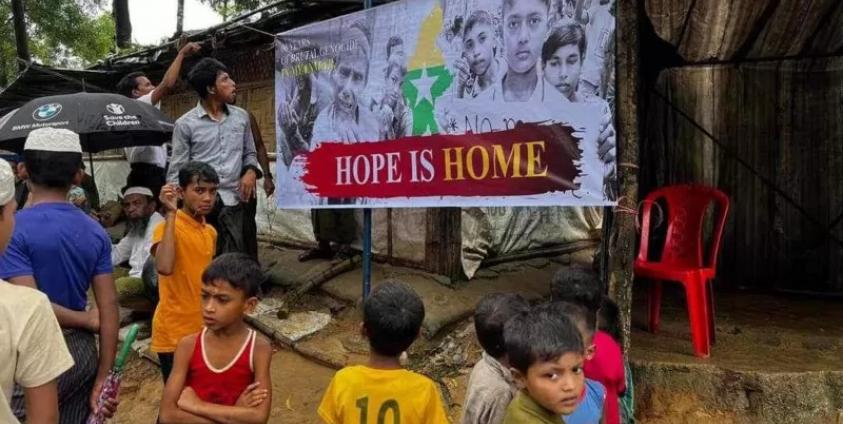The Muslim communities are urging for tangible measures to confront the devastating loss of lives resulting from Myanmar Military’s operations, conducted under the pretext of area cleansing in Maungdaw, Buthidaung, and Rathedaung townships in Rakhine State.
This appeal was put forth during an online discussion commemorating the 6th anniversary of Genocide Remembrance Day on August 25th.
The online discussion was participated in by National Unity Government (NUG) ministers, Muslim advocates, and political activists.
"We will persist until justice is served for the senseless loss of our innocent Muslim brethren. The atrocities and brutal acts that transpired have shaken the essence of human existence, and thus, we call for the rightful punishment of those responsible”, U Tun Khin, a Muslim advocate said.
Human rights activists and Muslims are seeking genuine justice through the Gambia's filing of charges against the Myanmar Military at the International Court of Justice (ICJ), regarding the genocide of Muslims and their subsequent mass exodus to neighboring Bangladesh.
Gambia has submitted charges to ICJ, alleging that the Myanmar Military engaged in widespread village burnings, killings, discrimination, and other violent acts directed at Muslim communities during offensives conducted under the guise of area cleansing operations.
At present, the coup Military Council is in the process of arranging the repatriation of over 1000 Muslim refugees as the initial group who had previously fled to Bangladesh. Nevertheless, there are concerns that this move is lacking genuine goodwill towards Muslims and is primarily an endeavor to seek a political way out for the situation being tried at the ICJ.
U Aung Kyaw Moe, Deputy Minister of the NUG's Ministry of Human Rights, emphasized that ensuring the secure return of Muslim refugees is a foremost priority for NUG.
"The condition of Muslims in Rakhine State remains dire, similar to before, with ongoing limitations on movement, healthcare, and education. Our goal is to seek justice for those in refugee camps who live without hope”, he said.
Muslims from Rakhine State and Muslim refugees in Bangladesh have faced significant limitations in areas like travel, healthcare, and employment, leading to various hardships.
"We've lost our farms, businesses, and loved ones. Living in refugee camps, we endure poverty and struggle. We desire to return home, but with secure and reliable arrangements, as we fear a repeat of the Myanmar Military's atrocities leading us into the same despair once more”, said a Muslim refugee in Bangladesh.








